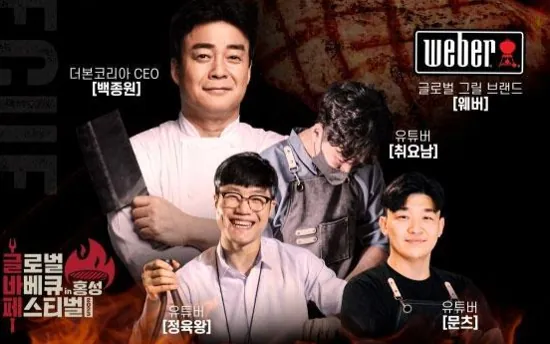
Rising Star or Market Monopoly? Paik Jong-won Faces Scrutiny as His Influence Expands
2024-12-20
Author: Ming
The Impact of Paik Jong-won's Influence
The landscape of the South Korean food industry is undergoing a significant transformation with the meteoric rise of restaurateur Paik Jong-won. As the CEO of Theborn Korea, his influence is prompting local governments to engage in fierce competition to secure his expertise for food festivals, raising eyebrows and concerns among critics and market observers alike.
Financial Commitments and Concerns
Local municipalities have reportedly channeled an astounding 10 billion won (approximately $7 million) of taxpayer money into Paik's consulting services over the past two years. While his unmatched ability to draw crowds to dining establishments is widely acknowledged, critics warn that his growing dominance could lead to monopolistic practices in the consulting sector.
Expanding Projects and Collaborations
Since 2020, Paik has taken on a staggering number of projects, signing over 30 memoranda of understanding (MOUs) with municipalities. His recent engagements include collaborations with Yeoju City, Eumseong County, and Hongseong County, all focused on redeveloping local marketplaces and rejuvenating downtown areas. A notable venture includes a significant commitment from Hapcheon County, which plans to invest 350 million won to enhance food street offerings in a proposed video theme park.
Objectives and Arguments
The primary objective of these regional projects is to boost local tourism and commerce through seasonal food festivals, which celebrate unique local specialties and attractions. Governments aim to draw more visitors by implementing Paik’s strategies. However, the implicit concern is whether such reliance on a single figure is truly healthy for the local economy or merely benefiting Theborn Korea.
Criticism of Consultation Fees
Critics of this trend point out that Paik's consultation fees—ranging from 300 million to 600 million won per session, with some exceeding 1 billion won—will inevitably divert taxpayer funds to one company. Their concerns are heightened by the absence of any standardized fee structure for these regional development consultation contracts, creating an environment ripe for exploitation.
Academic Perspectives
A professor from Yonsei University voiced that while Paik's talent is undeniable, the overwhelming trend of local authorities flocking to him for festival consulting indicates a troubling dependence. “These festivals need to prioritize sustainability and longevity over short-term success,” he stated, advocating for a reimagined approach that transcends mere one-time events.
Response from Theborn Korea
In response to these criticisms, Theborn Korea has refuted claims of market monopolization and contested the accuracy of the reported consultation fees. The company emphasizes that Paik's strategies have transformed local economies and bolstered the food and beverage industry overall.
Paik's Rise to Prominence
Paik's ascent to fame began with his popular television appearances, where he showcased his skills in rescuing struggling eateries and judging culinary contests. This visibility has propelled Theborn Korea, a multi-brand company that he founded in 1994 and which now oversees over 20 food and beverage brands, including restaurants and cafes.
Future Outlook
The latest chapter in Paik's saga unfolded earlier this month when Theborn Korea made its debut on the stock market, boasting a market value of 456 billion won. As his star continues to rise, the question on many lips remains: is Paik Jong-won a visionary revitalizing local economies, or is he an entrepreneur risking the fate of regional festival culture through monopolization? The conversation around his influence is far from over.


 Brasil (PT)
Brasil (PT)
 Canada (EN)
Canada (EN)
 Chile (ES)
Chile (ES)
 España (ES)
España (ES)
 France (FR)
France (FR)
 Hong Kong (EN)
Hong Kong (EN)
 Italia (IT)
Italia (IT)
 日本 (JA)
日本 (JA)
 Magyarország (HU)
Magyarország (HU)
 Norge (NO)
Norge (NO)
 Polska (PL)
Polska (PL)
 Schweiz (DE)
Schweiz (DE)
 Singapore (EN)
Singapore (EN)
 Sverige (SV)
Sverige (SV)
 Suomi (FI)
Suomi (FI)
 Türkiye (TR)
Türkiye (TR)